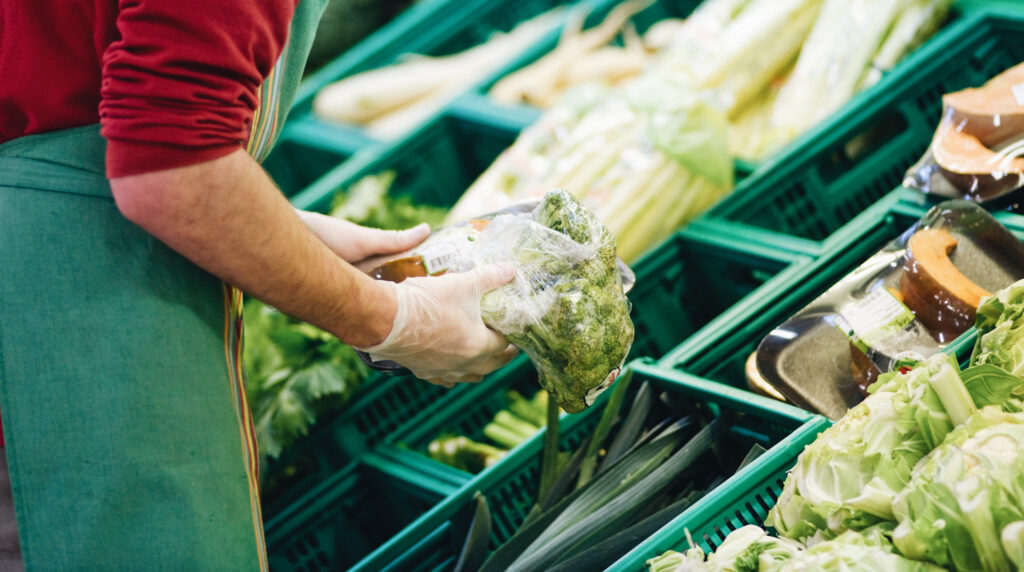France is introducing a plastic ban for nearly all fruit and vegetables from early next year.
The law was first passed in February 2020 and the environment ministry recently published a list of around 30 types of fresh produce that must be sold without plastic packaging from January 2022, including aubergines, round tomatoes, oranges, apples, and bananas.
Plastic packaging will be phased out for additional fruit and vegetables over the coming years. Cherry tomatoes, green beans, and peaches must be plastic-free by 2023, endives, asparagus, cherries, and mushrooms by 2024, and raspberries and strawberries by 2026.
The new legislation will significantly reduce France’s national plastic production and tie into the country’s broader goals of waste reduction, sustainability, and circularity. Earlier this year, plastic straws, cups, and cutlery were banned nationwide, along with styrofoam takeaway containers.
France bans plastic on produce
France currently produces 4.8 million tonnes of plastic annually, and just 16 percent is recycled. Around 37 percent of fruit and vegetables are sold with some kind of packaging, and the new ban could prevent over 1 billion pieces of unnecessary and harmful plastic per year.
“We use an outrageous amount of single-use plastic in our daily lives,” says the French environment ministry. “The circular economy law aims at cutting back the use of throwaway plastic and boost its substitution by other materials or reusable and recyclable packaging.”
The state-owned French National Railway Company (SNCF) is also taking action against waste and recently announced that it will no longer sell water in plastic bottles on its services. Instead, the operator will provide recyclable cardboard and reusable aluminum containers.
From 2022, all public spaces in France will be required to provide water fountains to reduce the use of plastic bottles, and fast-food restaurants will be banned from offering free plastic toys. The following year will see all throwaway crockery banned for meals consumed in-store.
Reducing waste and the circular economy
The far-reaching anti-waste and circular economy bill also bans companies from destroying unsold or returned clothes, cosmetics, and electrical items, which must instead be redistributed or recycled.
Former prime minister Édouard Philippe’s office revealed that France destroys or discards over €650m worth of new consumer products every year. (This is currently standard practice for many large companies, and just one of Amazon’s 40+ warehouses destroys millions of items.)
In general, this level of waste is incompatible with sustainable production and consumption, and nations and businesses alike are increasingly favoring a circular approach to minimize impact. For example, in 2016, France passed a law that forces supermarkets to donate usable expired food or face a €10,000 fine for unnecessary waste.
Arash Derambarsh, the city councilor of Courbevoie, spearheaded the campaign that led to this legislation and told the Guardian that the new anti-waste bill must also come with financial repercussions for transgressors if it is to be effective.


